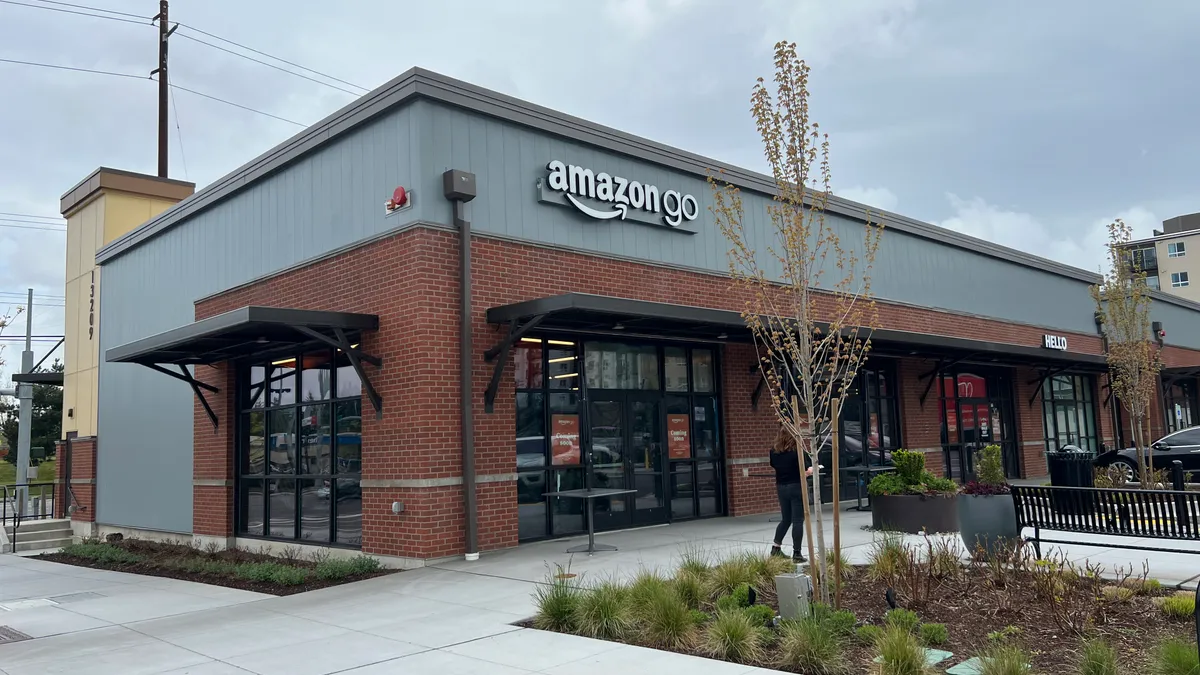Dive Brief:
-
Amazon has frozen corporate hiring in its retail business until some time early in 2023, the New York Times reported on Tuesday. The e-commerce giant didn’t dispute the report, but said it’s still hiring in certain areas.
-
“Amazon continues to have a significant number of open roles available across the company,” Amazon spokesperson Brad Glasser said by email. “We have many different businesses at various stages of evolution, and we expect to keep adjusting our hiring strategies in each of these businesses at various junctures.”
-
The company’s retail sales have declined all year as expenses have surged, helping to push it into the red in the most recent quarter, and some analysts believe its Prime membership shows signs of plateauing.
Dive Insight:
Amazon has arguably been pulling back from its retail business for a while, increasingly relying on enterprises more lucrative than selling merchandise. In fact for years now its third-party marketplace has been responsible for nearly two-thirds of the goods sold on its site, with seller fees providing a rich source of revenue growth.
For even longer, its AWS cloud computing unit has been the company’s profit center. The company has also recently been striking deals with other retailers to leverage its “just walk out” in-store payment tech. And advertising has emerged as a growth vehicle: Amazon executives in July said the company is working on more ways to leverage ads, including via livestreaming, and video and music streaming.
In its most recent quarter, subscription sales rose 10%, seller services revenue rose 9.1% and advertising sales rose 17.5%, while retail sales fell 4.3%. The e-retailer, which has relied on its annual Prime Day sale to stoke its membership base and supercharge sales, for the first time is holding a second such event this month.
The company earlier this year shuttered all its bookstores and 4-star general merchandise stores. Its downsizing isn’t limited to brick-and-mortar retail, however, as the company has canceled or delayed dozens of warehouses, just months after Amazon Chief Financial Officer Brian Olsavsky told analysts that the company would mitigate the burgeoning costs of its ambitious capacity expansion by growing into it as early as this year.
The retail hiring freeze could be a consequence of over-hiring during the height of the pandemic, a corollary to the over-building of its warehouse capacity. Both were over-reactions to what turned out to be an unsustainable surge of demand in e-commerce, according to Erik Gordon, professor at the University of Michigan's Ross School of Business.
“They drew a straight line up, when in fact that line has leveled off,” he said by phone.
But it could also reflect a sense at Amazon that its potential for dramatic growth now lies outside of retail, in part because retailers have learned how to compete. Thanks to BOPIS, shopping locally even for staples is often preferable to waiting on Amazon’s swiftest delivery time; meanwhile, many consumers won't shop on Amazon when it’s important to find an item that’s unique or, despite its efforts to fight counterfeits, genuine, he said.
Amazon isn’t leaving the retail business, but it hasn’t excelled at it either, according to Paula Rosenblum, co-founder and managing partner at RSR Research.
“Amazon is a retailer, just not a particularly good one,” she said by email. “Certainly it has never been a profitable one. AWS floats the business, and the marketplace helps stem the losses. At brick and mortar, I can be even more definitive…the company doesn’t know how to do it in a practical way at all.”














